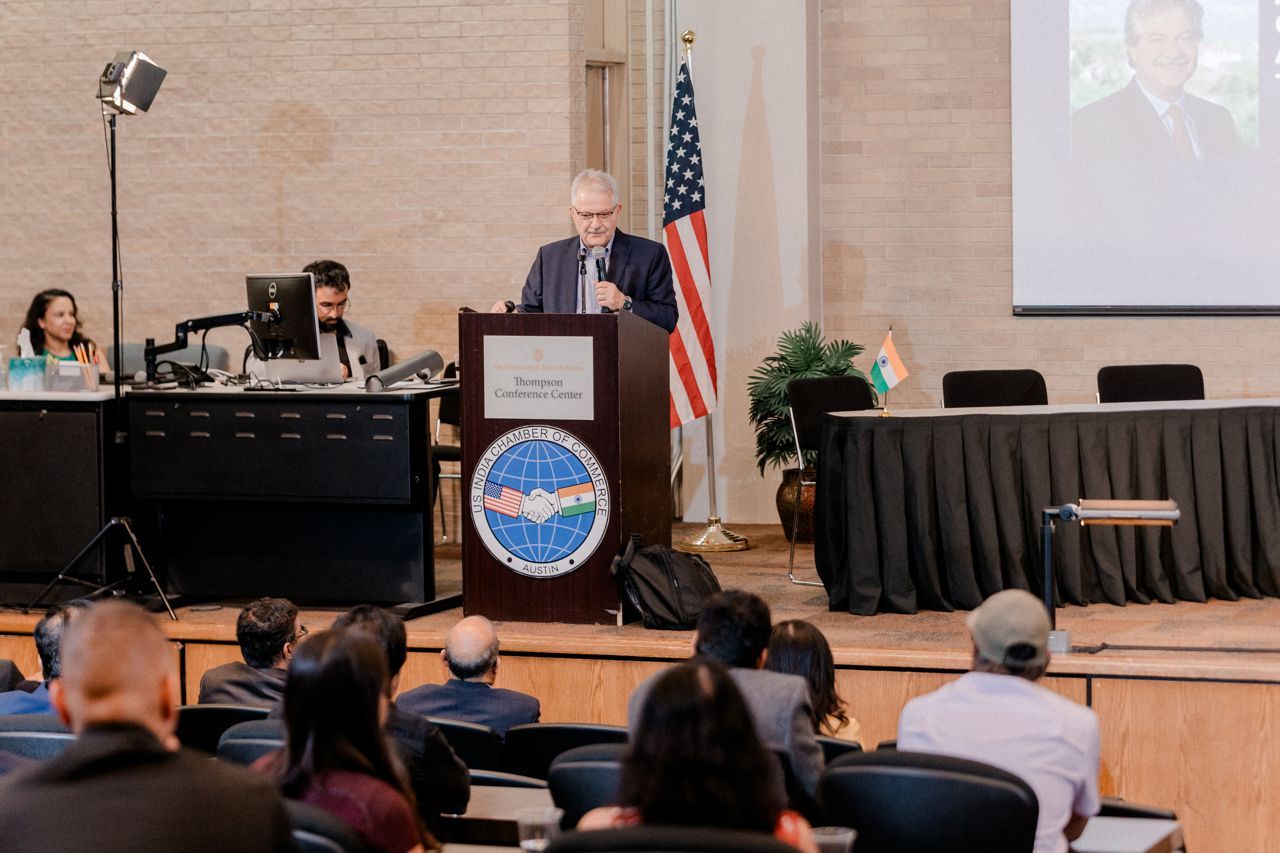The following is clipped from the Austin Business Journal:
Site selectors and economic development experts said the brutal weather conditions that Texans experienced earlier this month likely won’t pose a threat, at least in the short term, to Austin’s growing reputation as a magnet for business. But there could be a long-term impact if nothing is done on the state level to make the electrical grid more resilient.
The winter storms exposed new challenges — largely, the reliability of Texas’ grid — while also reinforcing some of Austin’s positive attributes, experts said.
2020 was a banner year in Central Texas for jobs created from corporate relocations and expansions, and Austin continues to be a landing spot for companies of all sizes and industries. At least a dozen companies have relocated here since the start of January, and Samsung is considering the area for a $17 billion chipmaking plant — one of the largest economic development projects in U.S. history.
Laura Huffman, president and CEO of the Greater Austin Chamber of Commerce, was unaware of any businesses looking to expand or relocate to Austin that had changed their minds based on last week’s storms. And she didn’t know of any local companies that had decided to jump ship, though she said business owners have expressed some concern.
“Companies are asking questions. There is no doubt that having a reliable, resilient energy supply is a core concern for businesses,” Huffman said. “I think what’s most important now, and what we’re watching, are the steps that are underway at the state and local levels to define the points of failure and to design remedies.”
For certain industries, like high-tech manufacturing, the state’s response to the grid failure could be a much more serious issue.
Ed Latson, executive director of Austin Regional Manufacturers Association, previously told Austin Business Journal that Austin might lose out to huge projects like Samsung’s next chipmaking plant if the state doesn’t invest in a more resilient grid. Fabrication facilities like Samsung’s current Austin campus rely heavily on access to both energy and water. As of the morning of Feb. 25, Samsung’s plant was still offline.
Others see the winter weather as just one factor among hundreds that are considered when companies are looking at new markets. Glenn Hegar, the Texas comptroller, said all of the features that make the state, and Austin, attractive for businesses are still in play, such as low taxes and fewer regulations. “It’s only the event of last week that I think is a black eye, and that’s temporary,” he said. “We have to prove that we’re very serious about addressing this issue, and as long as we do, that black eye is going to be removed, and Texas is going to continue right on the pace where we have been for the last decade.”
Conversations on the state level officially began Feb. 25 when the Texas Legislature began meeting to investigate the causes of the electricity failures and consider what could be done to address the issue. On Feb. 24, Gov. Greg Abbott said in an announcement that the current legislative session would not end until lawmakers reformed the state’s electric grid operator. He also said the weatherization of the state’s energy infrastructure would be a priority.
Angelos Angelou, principal executive officer at AngelouEconomics in Austin, called last week’s storms a “wake up call” for lawmakers, adding that changes need to be made to ensure that doesn’t happen again, though long-term relocation decisions likely won’t be impacted. Angelos’ experience includes nearly 12 years with the Austin Chamber of Commerce as vice president of economic development and chief economist. “Corporate site location decisions are made for the long run. They’re not going to be influenced by a major disaster like this, which was short-lived,” Angelou said.
Jason Ball, president and CEO of the Round Rock Chamber, echoed that sentiment. “Companies are generally pretty good at assessing business risk,” he said. “Will the storm that we just we went through enter into their calculations about business risk in Texas? Probably a little, but I’m still very bullish on what the future for Central Texas holds, and I don’t anticipate that the week-long event — as difficult as it’s been for people — will really turn into a long-term hindrance on our ability to grow.”
TX versus CA
Over the last few years, Austin has been a landing spot for many relocations from California, both corporate and personal. According to the U.S. Census Bureau’s 2020 population estimates, Texas added the most residents of any state last year, while California lost an estimated 69,532 residents — the first negative population change for the West Coast state since at least 1900, the earliest available data.
Site selector Joseph Vranich of McKinney-based Spectrum Location Solutions, whose specialty is companies leaving California, said Texas’ recent power outages won’t have a huge impact on the Lone Star State’s allure. “California is no energy paradise,” he said. “California regularly has blackouts due to a whole number of factors, including earthquakes.”
Vranich worried an increased reliance on renewable energy sources in California while other energy sources are being taken offline, including nuclear power plants, could make the situation worse. Another site selector in New Jersey believes Texas can weather the storm.
“Site-seeking companies are sophisticated enough to realize that there’s no perfect location,” said John Boyd, principal for The Boyd Co. Inc. “There are trade-offs with every business climate.” What Texans don’t want, Boyd said, is for the state’s power grid to become politicized to the point where companies view Texas as less business-friendly.
In Texas, lawmakers seem keen to prioritize the weatherization of wind turbines, natural gas pipelines and other parts of the power grid. “What we have are companies that have already been through many blackouts in California, and they’re looking at this once-in-a-lifetime Texas situation and saying, ‘Yeah, I think we could deal with that,'” Vranich said.
Texas’ recent power struggles are unlikely to diminish the value of other advantages it has over the West Coast state, according to Vranich. Businesses generally save 20% on overall costs by moving from California to Texas, in the form of lower taxes, cost of living and payroll.
“There’s an overwhelming list of considerations that companies look at before they elect their semi-finalists and before they make the final decision as to which community they’re going to set up shop in,” he said.
















One Response
This blog covers important and relevant topics that many are afraid to address Thank you for being a voice for the voiceless